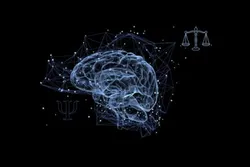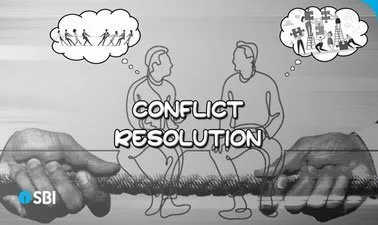
Mediation and Conflict Resolution 
This course will teach you the fundamentals of mediation and conflict resolution. You will learn how to choose and lead a mediation process, gain a deeper understanding of workplace and international conflict resolution, and acquire the skills to identify typical challenges and difficulties that mediators face. Through video lectures, interactive questions, case studies, practice and graded quizzes, you will be able to define what a mediation is, list different types of mediation, choose the adequate strategies, and identify the do’s and don’ts in mediation. ▼
ADVERTISEMENT
Course Feature
![]() Cost:
Cost:
Free
![]() Provider:
Provider:
Coursera
![]() Certificate:
Certificate:
Paid Certification
![]() Language:
Language:
English
![]() Start Date:
Start Date:
10th Jul, 2023
Course Overview
❗The content presented here is sourced directly from Coursera platform. For comprehensive course details, including enrollment information, simply click on the 'Go to class' link on our website.
Updated in [May 25th, 2023]
The Mediation and Conflict Resolution course provides learners with the opportunity to gain a deeper understanding of workplace and international conflict resolution. Learners will be able to choose and lead a mediation process, and will be equipped with the knowledge to define what a mediation is and when to use it, list different types of mediation, identify typical challenges and difficulties that most mediators face, choose the adequate strategies within a repertoire of options, and identify the do’s and don’ts in mediation. This course is a logical follow on from the suite of ESSEC IRENE online courses in negotiation, and provides learners with a meaningful and effective bouquet of practical cases, tools, approaches and skills to put their mediation into high-impact practice. The course includes video lectures from leading experts, interactive questions, case studies, practice and graded quizzes. Fundamentals of Negotiation are required to complete this MOOC, which can be acquired through the MOOC "Negotiation Fundamentals".
[Applications]
After completing this course, participants can apply their knowledge of mediation and conflict resolution to a variety of situations. They can use the strategies and techniques they have learned to help resolve conflicts in the workplace, in international settings, and in peace-keeping efforts. Participants can also use the do's and don'ts of mediation to ensure that their mediation efforts are successful. Additionally, participants can use the video lectures, interactive questions, case studies, and practice quizzes to further develop their skills in mediation and conflict resolution.
[Career Paths]
1. Mediation Specialist: Mediation specialists are responsible for helping to resolve conflicts between parties. They use a variety of techniques to help parties come to an agreement, such as negotiation, mediation, and arbitration. They must be able to assess the situation and determine the best course of action. This job is expected to grow in the coming years as more organizations look to resolve conflicts without resorting to litigation.
2. Conflict Resolution Consultant: Conflict resolution consultants help organizations and individuals resolve disputes. They use a variety of techniques, such as negotiation, mediation, and arbitration, to help parties come to an agreement. They must be able to assess the situation and determine the best course of action. This job is expected to grow in the coming years as more organizations look to resolve conflicts without resorting to litigation.
3. Negotiation Trainer: Negotiation trainers help individuals and organizations develop their negotiation skills. They provide training on topics such as communication, problem-solving, and conflict resolution. They must be able to assess the situation and determine the best course of action. This job is expected to grow in the coming years as more organizations look to develop their negotiation skills.
4. Dispute Resolution Professional: Dispute resolution professionals help organizations and individuals resolve disputes. They use a variety of techniques, such as negotiation, mediation, and arbitration, to help parties come to an agreement. They must be able to assess the situation and determine the best course of action. This job is expected to grow in the coming years as more organizations look to resolve conflicts without resorting to litigation.
[Education Paths]
1. Bachelor of Arts in Conflict Resolution: This degree program focuses on the study of conflict resolution and mediation techniques. It covers topics such as negotiation, communication, and problem-solving. Students learn how to identify and analyze conflicts, develop strategies to resolve them, and create plans for long-term peace. This degree is becoming increasingly popular as more organizations recognize the importance of conflict resolution in the workplace.
2. Master of Science in Conflict Resolution: This degree program provides a more in-depth look at the field of conflict resolution. Students learn about the history and theory of conflict resolution, as well as the practical skills needed to be successful in the field. This degree is ideal for those who want to pursue a career in conflict resolution or mediation.
3. Doctor of Philosophy in Conflict Resolution: This degree program is designed for those who want to pursue a career in research or teaching in the field of conflict resolution. Students learn about the history and theory of conflict resolution, as well as the practical skills needed to be successful in the field. This degree is ideal for those who want to pursue a career in research or teaching in the field of conflict resolution.
4. Certificate in Conflict Resolution: This certificate program provides a basic introduction to the field of conflict resolution. It covers topics such as negotiation, communication, and problem-solving. Students learn how to identify and analyze conflicts, develop strategies to resolve them, and create plans for long-term peace. This certificate is ideal for those who want to gain a basic understanding of conflict resolution and mediation techniques.
Pros & Cons

Practical examples, testimonials and tips & tricks

Systematic learning with tests to check understanding

Insightful and well conducted

Too theoretical and conceptual

Outdated pedagogical approach

Lack of additional materials for deeper learning
Course Provider

Provider Coursera's Stats at AZClass
Discussion and Reviews
0.0 (Based on 0 reviews)
Explore Similar Online Courses

Forensic Mental Health and Criminal Justice

Online Marketing Course - Staying Close to the Customer

Python for Informatics: Exploring Information

Social Network Analysis

Introduction to Systematic Review and Meta-Analysis

The Analytics Edge

DCO042 - Python For Informatics

Causal Diagrams: Draw Your Assumptions Before Your Conclusions

Whole genome sequencing of bacterial genomes - tools and applications

Introduction to Conflict Management

Conflict Resolution

Managing conflict and polarization in the workplace and beyond
 Related Categories
Related Categories
Quiz
 Submitted Sucessfully
Submitted Sucessfully
1. What is the main purpose of this course?
2. What are the main topics covered in this course?
3. What will you be able to do after completing this course?


Start your review of Mediation and Conflict Resolution